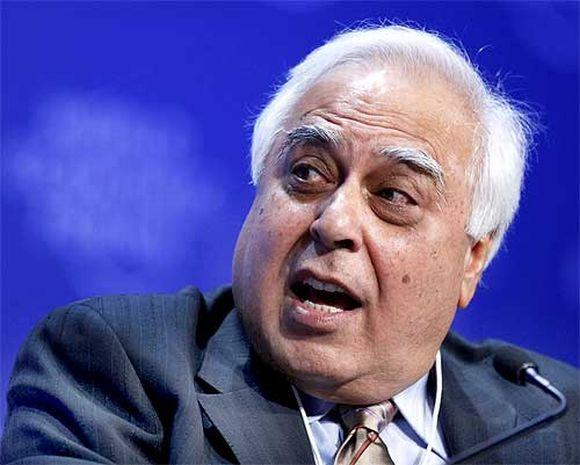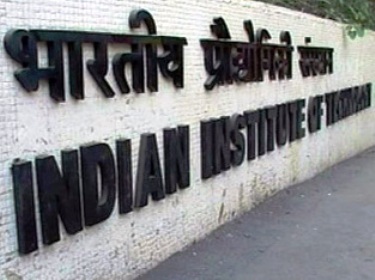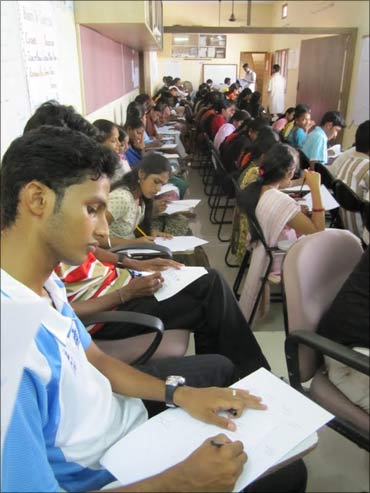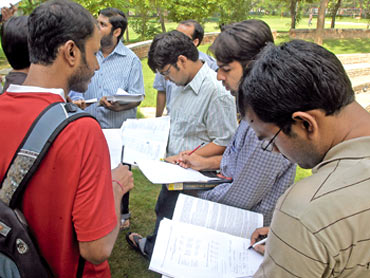
In an exclusive interview to CNN-IBN's deputy editor Sagarika Ghose, Human Resource Development minister Kapil Sibal explains how the joint entrance exam (JEE) has led to the decline of school education, why the new format will stay for 2013 and why he is unfazed about the autonomy of IIT-Kanpur.
On the new single entrance test for all IITs
This is not my decision. This is a decision of the IIT Council, which is a statutory authority under the IIT Act. The IITs by and large have accepted this decision. The only opposition is coming from the senate of IIT Kanpur. That opinion also we respect.
The last thing the Council wants to do is to dilute the quality of the IIT system. We want to protect the excellence of IIT system. Nothing will be done to dilute their excellence.
We feel the children think they have to sit for the IIT entrance and so they don't bother about their class 12th board. The standard of the school system is declining. This has led to a plethora of coaching institutions. An IIT-Bombay study shows of the 476 students admitted, 300 came from the coaching institutions. That means this has become urban centric.
Those parents who can afford to send their children to coaching can get them admitted into IITs. So this has resulted in diluting school system and a pro-urban approach. This caters to the rich and powerful.
Girls do the best in boards, they are toppers but there are no girls in IITs. Because parents can't afford to send their young girls to Kota. So some of the best students can't even compete because of these coaching centres.
There is an issue of capitation fee. If you have only one exam all over India there will be no capitation fee. In which country do children sit for 30 different exams?
In this country those children who sit for IITs also appear for exams in other technical institutions and state institutions. The parents run from pillar to post filling up forms and giving security deposits which they don't get back. What we are doing is consistent with international standards.
Because in America, it is the board exam that determines admission, there is no separate entrance for MIT and Havard. In England, it's 'A' level which determine admission. There is no separate test for Oxford or Cambridge.
In China, 90 lakh students sit for one national test. The 1986 policy of the government of India says that there should be one national test. But till 2012, we have not implemented that."
Please click NEXT to continue reading
Do you agree with the HRD Ministry's decision that having a common entrance exam will really help reduce the stress among students? Share your views with us! Post your comments on Rediff ZaraBol below!
Please click NEXT to continue reading

On the issue of autonomy
How is the autonomy affected? The entrance examination is to be set by the joint admissions board, which is again an IIT institution. The admission process is controlled by the council. It is not controlled by the individual IITs.
There is ordinance saying that the Council will control the JEE for all IITs. That is an old system. In this case also, the final examination which is the Advanced paper is going to be set by the IITs. So the autonomy of the IITs is not affected at all.
There is a two-tier process. For IITs there is a process and the process for other centrally funded institutions is entirely different. Because of their objections we have accepted their objections.
For the NITs and other centrally funded institutions the weightage to class 12th board will be 40 per cent, 30 per cent for the main exam and 30 per cent for the advanced exam. The advanced exam paper will be set by the Joint Admission Board.
The main exam will be set by majority of the IIT people. There will be an all-India merit list and on that basis, the children will choose their course and institution.
For IITs, the board exam is not given weightage. For the IIT system, the board exam will count for 50 per cent and the main exam will count for 50 per cent. Then the top 50,000 or whatever the screening is, their papers in the advanced will be judged and their merit in the advanced examination alone will be counted for admission in the IITs which is entirely under the control of the IITs.
There will be a two-tier exam. There is no weightage for the board exam for final admission. For admission, the advanced test result will only be counted.

On various boards
"This issue was raised in the council itself. There were several committees-- Acharia Committee, Kakodkar Committee and Ramaswamy Committee on this issue. Then the ISI was asked about a formula where we can equalise the various boards.
So the statistical institute worked on a formula through which a student in a Jharkand board who gets say 70 per cent and a student in Tamil Nadu board gets 89 per cent. The 70 per cent will be equated to the 89 per cent.
In other words, there will be no comparison. Nobody will get an advantage. The equation will be done on a percentile basis. The top 1 or 2 per cent will be taken, they will be equalised. The statistical institute has tested this formula on the basis of four different boards in the past four years and realised that there is complete equalisation and the difference in marks among the 10,000 students is 5.
So if some student is over marked by the board he will not be able to clear the main exam and in the advanced exam. At least now the children will be considered above their board results.
You see when I am living in a large mansion and I look outside and see shanty huts, either I close my eyes and I say I live in my own world. I have responsibility. I think the IITs have the responsibility to strengthen the school system and they must join in this national effort."
On the standard of IITs
"But that demand of excellence is maintained, if there were any dilution of excellence I would not allow this to happen, I would have requested the IITs council to relook at it.
As I said, the formula so divides, takes care of IIT's excellence and improves the quality of the school system and takes away the tension which is the most important thing. All admissions are meant for children, so you look at children while devising a system of exam not at the faculty.
Future of the children depend on what they do in their class 12 board."

On implementation of the new exam system
"This exam is to be taken up in 2013. It is the council's decision. "
On decision of the Coucil being challenged
"Any decision of the statutory authority can be challenged. People have the constitutional right to go to the court and vindicate their rights if they have any. It took 2 and half years to come devise a system of single entrance examination which is a part of the National Education Policy 1986. If two and half years is not enough to devise such simple system then it's better for the government not to take any decision."
On IIT Kanpur
"I reached out to all of them. I talked to them. I had a personal interaction with the faculty of all the IITs. In the IIT Council meeting two of their representatives were present. All state education ministers have unanimously supported it including the Ministers of the Opposition states. The only opposition is from the senate of IIT Kanpur. It's like either you are with or you are against us. The objection is not to the formula, but to the implementation of the formula."
On the existing system of entrance
"The existing system did not bother about the school education of the children. The parents have to go through the tension of their children sitting for 30 separate exams. The existing system brought in the coaching industry and those who can afford. So the existing system has a lot of flaws. I tell the IITs to give me a solution that I will take to the Council. There can't be the business as usual.
The excellence of the system is the quality of the system. I also give great credit to the faculty. It's the quality of the students....because best students come to the IITs and the best students will still come. So there is no dilution of the quality. But there are certain ills in the present system that needs to be addressed. The IITs should have come out with solutions in these 40 years. They can't claim whatever they are doing, there is nothing better than that.
To the students
"If you take care of your class 12 board, you have many more opportunities. Because at the moment, after class 10, you run to that coaching industry. You don't do well in class 12 board, you don't get into the IIT. If you take care of your class 12, your fundamentals will be much better. I tell the IITs to open the window and look at ordinary students who does not get into the IITs."
On double burden
"The board exam is not a burden. It's the foundation of all future excellence."
On repeating the exam
"Students can repeat the exams. Ultimately, we plan two-three exams every year. But IITs will decide on that. The students can improve on their performance."
On reforms in education
"I've not reduced excellence in education. CCEA (Cabinete Committee on Economic Affairs) is increasing excellence and critical analysis in children. RTE (Right to Education) is giving access. All my reform measures address two issues -- access and quality. Both go hand in hand and you can't have an appropriate school system without that. If anybody has a better solution I will press for it."